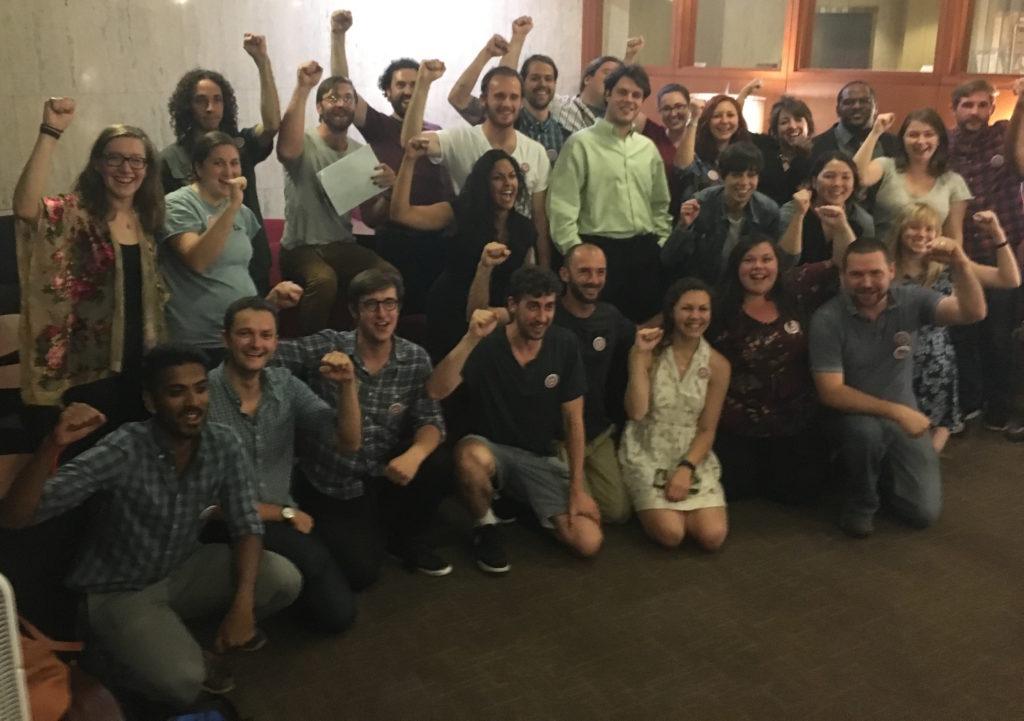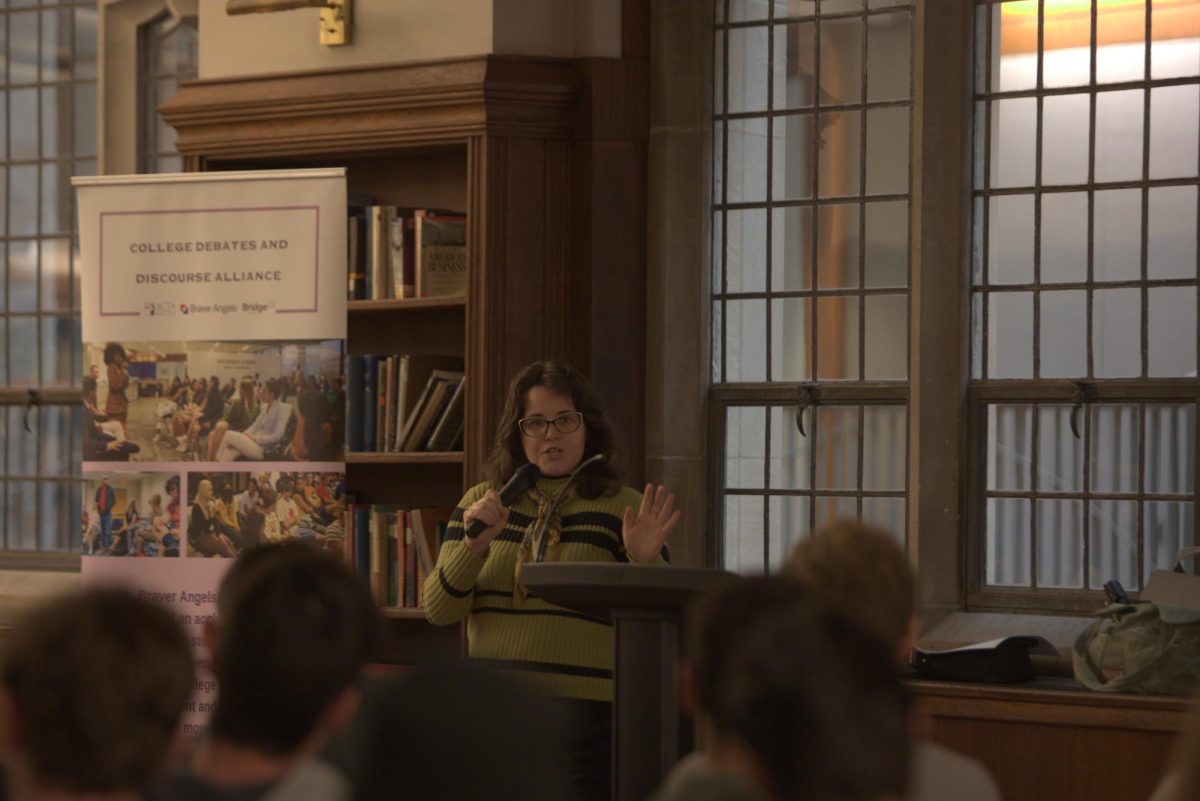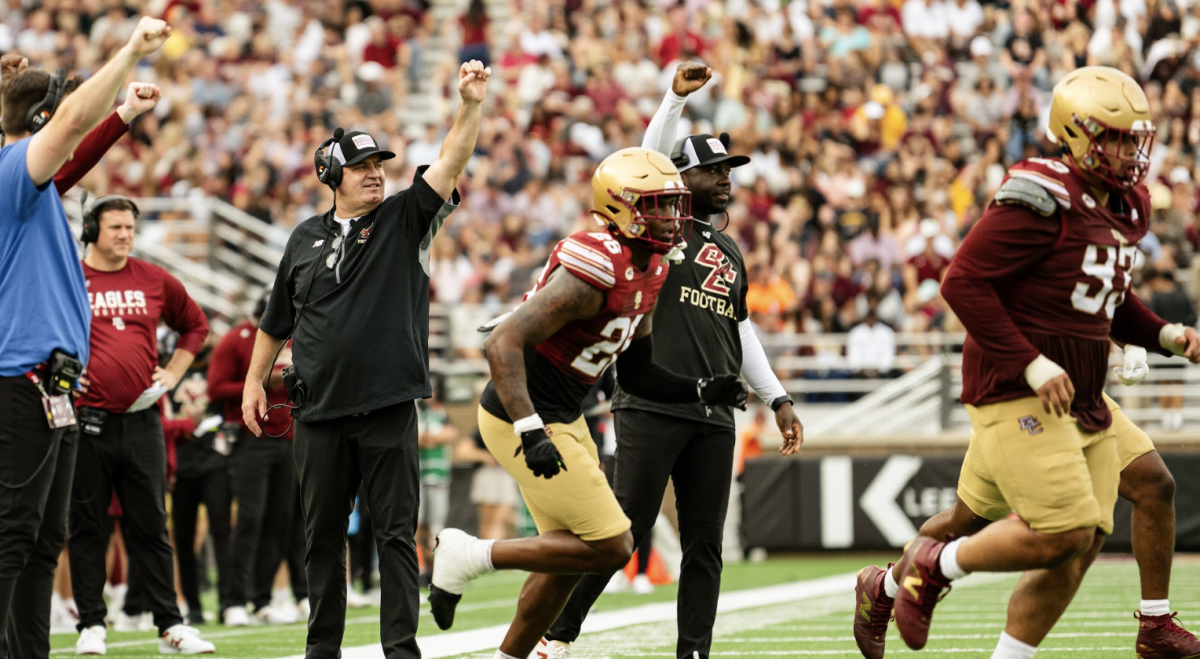After its successful vote to establish collective bargaining rights with the University, the Boston College Graduate Employees Union’s next step is to elect a bargaining committee, which they hope to do this fall, according to a union representative.
Graduate student employees still need to determine the structure and size of the committee, particularly how many representatives will come from each school. Columbia University’s graduate employee union, for example, has a 10-person committee representing many academic disciplines. If the union decides that one worker will represent each school on the committee, there could be elections within schools.
After the bargaining committee is selected, the union will send out bargaining surveys for graduate student workers to outline some of their priorities and help the bargaining committee determine what the union wants to see from negotiations with BC. Once they get the surveys, the committee will develop additional bargaining goals, which graduate student employees will also vote to approve, the representative said.
Once a tentative agreement is reached between the union and the University, the agreement goes out to union members to be ratified. There were 778 eligible voters in the election, all of which are now in the union. All votes in this process are decided by simple majority rule. Collective bargaining does not include graduate students in the theology department or the School of Theology and Ministry.
The closeness of the successful collective bargaining vote, which passed 270-224, appeared to be unexpected by some, including Victoria Gabriele, a second-year Ph.D. student in physics, who said on Sept. 13, the night the votes were counted, that the margin was a surprise.
In the lead-up to the election, several of the deans of BC’s schools sent out similar emails to graduate students highlighting some potentially negative aspects of unionization for graduate employees. Dean of the School of Social Work Gautam Yadama, for example, sent an email on Sept. 11 highlighting that union members would have to pay dues to the United Auto Workers and that they would have to strike if the union voted to do so, as well as BC’s concerns that the NLRB is violating its religious liberty and that it would impact the work environment.
“The unionization of graduate students would alter the traditional academic relationship that has long existed between faculty and funded graduate students in the School of Social Work,” Yadama wrote.
Caliesha Comley, a sociology Ph.D. candidate, described the collective bargaining victory as a “strong affirmation” for the union and accused BC of attempting to mislead graduate workers into voting “no.”
Of eight department chairs emailed for comment Friday, six did not respond or declined to comment on how they think graduate employee unionization could impact their departments.
Sarah Gwyneth Ross, the chair of the history department, said in an email that she takes an optimistic view overall of unionization’s effect, but added that it could add strain to professor-student relationships because of the inherent external regulation involved with unions. However, it could also take pressure off of faculty to advocate for graduate students with the administration.
“Those who mentor grad students at BC have traditionally spent a great deal of time worrying about and campaigning for their access to reasonable compensation for their work as research and teaching assistants during the year, as well as to summer research funding and health care coverage—let alone dental insurance!” she wrote. “The presence of a union will put these issues on a new footing, giving grad students a more solid form of backing than ad hoc departmental initiatives can offer.”
“And I’m hopeful that faculty conversations with graduate mentees individually, and about our graduate programs at the department level, may increasingly recenter on the content of scholarship rather than on how to address our grads’ practical, procedural, and health challenges,” she added.
Hideo Konishi and Robert Murphy, the chair and assistant chair of the economics department, respectively, said they have the same view on unionization as laid out by Provost and Dean of Faculties David Quigley in his open letter from Aug. 21. The letter, which appears to no longer be available online, explained BC’s opposition to unionization and announced that the University had filed a motion with the NLRB to stay the election and review its decision in sanctioning the election. The motion was denied on Sept. 11, the day before voting began.
In the week before the election, Brad van Uden, a political science Ph.D. student, set up a website called “Concerned BC Grad Students” and sent a series of emails to eligible graduate employees encouraging them to vote “no.” He has declined to be quoted in The Heights, although he wrote an op-ed outlining his opposition. Voting records are not public, and the letters on the site are largely anonymous. Several other graduate workers did not respond to requests for comment on their position on unionization.
Colin McConarty, a history Ph.D. student who voted in favor of unionization, said he thought it was odd that an organized opposition to the union—and therefore a public debate on its viability—didn’t start until shortly before the election, whereas the union had been making arguments for over two years.
“I never understood why there wasn’t just a debate about it,” he said.
McConarty supported the union, he said, because graduate worker stipends are too low for students trying to support families. He had made up his mind well before the vote, having considered counter-arguments to unionization in advance, but he said not everyone might have done the same.
“I think a lot of people weren’t having that same internal debate over the two years, and then just got hammered over the last two days with stuff and just had to make their decision,” he said.
Featured Image Courtesy of BCGEU-UAW



















